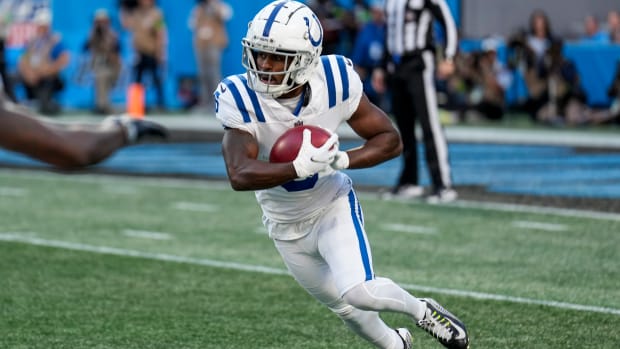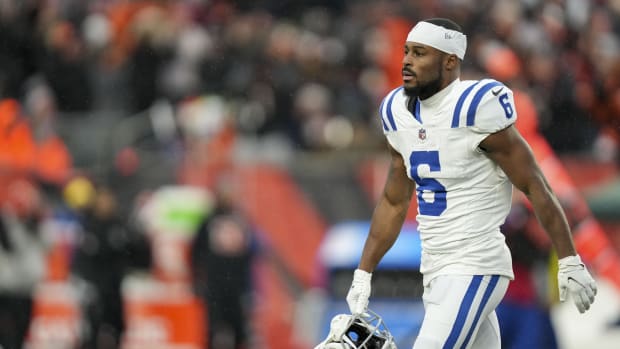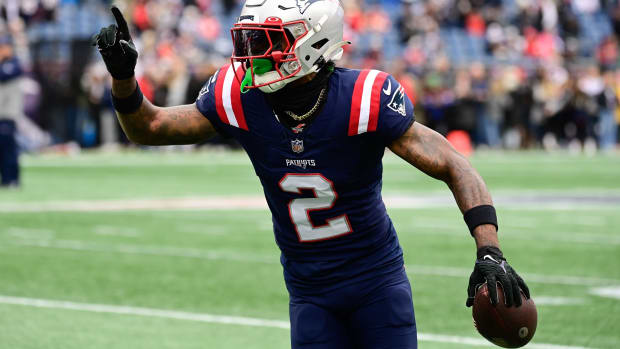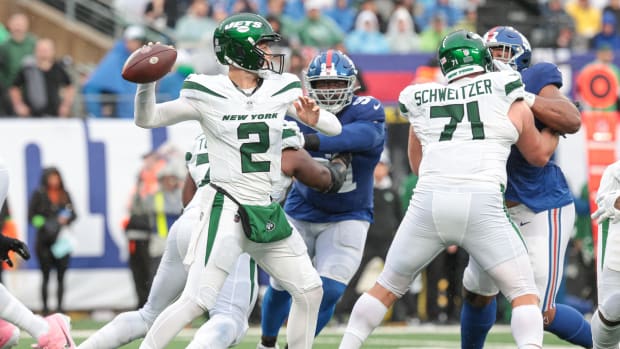Giants Plan to Use Starters on Special Teams
Giants head coach Joe Judge is where he is right now because of an unwavering commitment to special team, and he has no intention of leaving that value behind in his new post.
As the former special teams coordinator for the New England Patriots, Judge led a unit that was prioritized just as highly as the offense and defense.
Outside of quarterback Tom Brady, special teams wasn't off-limits for any Patriots player.
As the head coach of the Giants, Judge is bringing that same philosophy to the Giants. Key players such as safety Jabrill Peppers, a player who in three NFL seasons has averaged 759 defensive snaps per year, is an example of a player who should have a significant role on the Giants special teams units this year.
"I'm a firm believer in using the best players for every situation possible," Judge said during a video conference call with reporters Thursday.
"I don't care if you're playing 60 plays on defense, or 60 plays on offense, if we need you on a unit for special teams and it's best for the team then that's where you can make an impact."
For the Giants as an organization, critical starters playing special teams is nothing new.
Hall-of-Fame linebacker Lawrence Taylor made his mark on football history as a relentless pass rusher back in the 1980s and part of the 1990s, but he was also all too happy to contribute to special teams a punt team protector.
Patriots head coach Bill Belichick, Judge's former boss, was the Giants special teams coordinator and linebackers coach from 1979-1984.
Belichick put Taylor to work on defense and special teams after Taylor was drafted second overall by the Giants in 1981.
"Lawrence Taylor playing on field goal protection and on punt protection, these are things that I've used in the past on different teams," Judge said. "Lawrence Taylor played that because he loved football and made an impact for the team."
Judge acknowledged that in the past, playing special teams was mostly regarded as an afterthought by some players and coaches, noting how in college, some players would accept a role on special teams to earn a varsity letter.
Even in the NFL, there was once an unsaid belief that if you were relegated to special teams, that likely meant you weren't good enough to contribute elsewhere consistently.
The example of Taylor stepping forward proves otherwise.
"When you kind of point out ‘ok, you think you’re too good to play on any unit, whatever the team needs you to do? You know Lawrence Taylor, he wasn’t too good for that. He was out there to win and he had a lot of success doing it.’ It kind of puts the teams in perspective," Judge said.
"There have been different illustrations that I’ve used in the past of great teams and some of their better players playing on multiple units, as starters and special teamers. Again, to me, it’s football. Football players who love the game will play on any phase with the same amount of passion and effectiveness because they want to win the game."
Peppers, voted a special teams captain, is one of several examples that the Giant shave who love the game so much to where they'll happily accept a more significant role that includes special teams.
"[Peppers] is a guy that loves football and really, what he is is kind of that guy in the classroom that can't sit still and keeps wiggling. You got to keep him busy all the time otherwise he gets disruptive so his involvement on special teams is just to ensure that he stays out of the other coaches' hair."
The Giants have maintained a substantial special teams standard under special teams coordinator Thomas McGaughey's leadership. The Giants special teams units have ranked at or near the top-10 in the league in almost every major statistical category in each of the last two seasons with McGaughey running the unit.
During that time, McGaughey has been afforded the players he needs to gear the units toward winning the field position battle, which is expected to continue under Judge.
"You want to put your best foot forward in every phase, you don't want to just on one phase or the other because that's not how this game is played," McGaughey said.
"It's a complementary game, you have to play complementary football and the only way to do that you have to play all three phases and play your best players on those phases."




